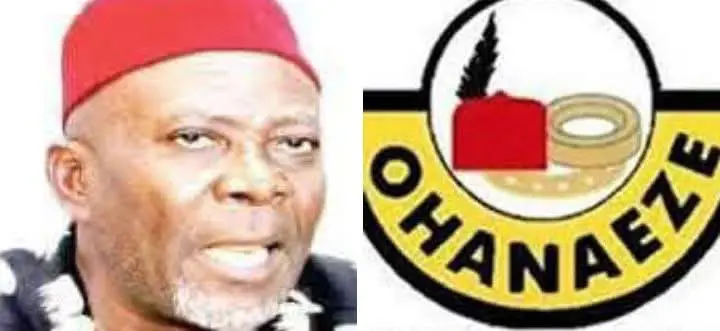
Keir Starmer reaches a significant milestone today – but there will be no champagne corks popping in 10 Downing Street to mark it.
It is now 50 days since the Labour leader became prime minister, meaning he has officially outlasted Liz Truss’ time in office.
Defeating the woman who was outlasted by a lettuce may not be much to shout about, but with trouble looming large on the horizon, Starmer would be wise to take any wins he can.
In a month’s time, Labour will gather in Liverpool for its annual conference as a party of government for the first time since 2009.
But amid the understandable celebrations, there will also be simmering discontent among those who are less than impressed with Starmer’s first few weeks in office.
“The two-child cap will be a big issue at conference, we’re expecting some bother with that one,” a senior No10 insider told HuffPost UK.
“There’ll be debates on the floor about it and a lot of people making clear their unhappiness with the government position.”
Starmer made it clear well before the election that scrapping the Tory-era policy – which prevents families from claiming child tax credit or universal credit for any third or subsequent child – was not on his agenda.
Nevertheless, the PM suffered his first Commons rebellion over the issue less than three weeks after the election, when seven Labour MPs voted with the SNP in calling for the cap to be ditched.
Among the rebels, who were all suspended for six months, was former shadow chancellor John McDonnell.
He told HuffPost UK: “With four million children currently living in poverty, some classified as destitute, there is a child poverty emergency in this country.
“Failing to scrap – or delaying the scrapping – of the two-child limit is far from living up to the promise of change that was the key slogan of the election.”
But the most controversial decision the new government had made so far – and the one which could have the biggest electoral impact – was Rachel Reeves’ announcement that the winter fuel payment for pensioners would no longer be a universal benefit.
Instead, the £200 payment (£300 for over-80s) will only go to those OAPs who also receive pensioner credit, meaning millions will now go without it.
A government source said: “No one wants to have to means test the winter fuel allowance. That’s why we’ve protected those pensioners who need it most. It’s a really difficult decision we had to take to begin to restore the public finances after 14 years of chaos. It won’t be the last one.”
The potential impact of the chancellor’s decision were brought into sharp focus on Friday morning when Ofgem increased the energy price cap by 10%, adding another £12 a month onto the average bill.
More than 400,000 people have so far signed an Age UK petition demanding its reinstatement, a clear indication of the strength of feeling among a section of the public who, worryingly for Starmer, always vote come election time.
Labour have also found time to become embroiled in a cronyism row, with several of the party’s supporters being ushered into plum civil service jobs.
Government insiders insist no rules have been broken, Hannah White of the Institute for Government said Labour “has made an early mistake by attempting to side-step established recruitment practices”.
In a blog, she said: “The established routes protect the civil service from politicisation and ministers from the appearance of impropriety, particularly where in-kind or financial donations are part of the picture.
“Neither objective has been met by this approach, which is all the more unfortunate given Keir Starmer’s focus on ethics and propriety during the election campaign.”

The one unforeseen event which has so far defined Starmer’s time in office was, of course, the riots which erupted after three young girls were killed while attending a Taylor Swift-themed dance class in Southport.
Online misinformation about the alleged killer – amplified by the likes of Nigel Farage – led to a wave of violence and disruption in England and Northern Ireland.
As a former Director of Public Prosecutions, the crisis could almost have been tailor-made for Starmer, and the public appear to approve of how he handled it.
He blamed “right-wing thuggery” for the riots and promised swift justice for those involved – a directive which led to lengthy jail sentences for some.
“The PM was very clear that the best way to stop the disorder was to make people think twice about the consequences,” said a government source.
“The Tories have gone from calling him a lefty lawyer to accusing him of being too tough on law and order. While they dithered, too scared to upset Nigel Farage, the government delivered justice.”
HuffPost UK revealed last week that polling by More in Common showed that voters’ net approval of the prime minister’s response has gone up since the early days of the disorder.
Separate polling by Savanta, shared exclusively with HuffPost UK, shows Starmer remains the most popular politician in the country, but suggests his post-election honeymoon period is coming to an end.
His net favourability is now +2, down from a high of +15 at the end of July.
However, he is still well ahead of Rishi Sunak, who is on -27, and Farage (-21).
Chris Hopkins, Savanta’s political research director, said: “Starmer’s first 50 days in office have been overshadowed, and defined, by his response to the civil unrest that swept the UK this summer.
“Our research suggests the public broadly think the prime minister managed the situation well, and agree with his approach, including his priority of locking up offenders as quickly as possible.
“However, our findings do suggest that the post-election shine has now worn off for Starmer. His favourability ratings have seen a reversion to his normal levels over August, but he is still the most popular politician in the UK.
“In that sense Starmer has managed his tricky first summer pretty well all things considered, although his autumn doesn’t look like it’s going to get any easier.”








